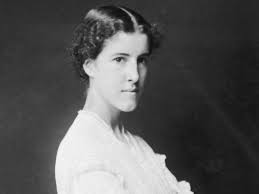Gilman, Charlotte Perkins

Bio: (1860-1935) American sociologist. Charlotte Perkins Gilman did not have a formal university education, but she was an extremely well-known and respected author of scientific and literary works. Although she did not teach at universities, she gave many public lectures, was a member of several women's associations, and published the magazine The Forerunner in the period from 1909 to 1916. In Women and Economics (1898), Gilman introduces a feminist sociological critique of the economic position of women in patriarchal societies and recognizes the importance of women's unpaid domestic work.
In the book The Man-made World or Our Androcentric Culture (1911), she explores how men monopolize all human activities, and call them men's work. Family and marriage serve the needs of men and the subordination of women. She studied the political and cultural processes of "normalization" and "masculinization" which create social construction of women as a deviation or inferior version of what is valuable and desirable, i.e., the men. Gilman also wrote about her own experience with postpartum depression and how doctors at the time refused to acknowledge that it was a real disease and were quick to classify it as a common female hysteria. that was, at that time, medically referred to as neurasthenia. She believed that feminist and labor movements were forces working on a common goal of making world progress. Gilman was among the first to begin gerontological research.
Fields of research
Aging Children Culture Economy Evolution Family Gender Health Patriarchy Utopia Work Working ClassTheoretical approaches
Feminism, LiberalMain works
Women and Economics: A Study of the Economic Relation between Men and Women as a Factor in Social Evolution (1898);
Concerning Children (1903);
The Home: Its Work and Influence (1903);
Human Work (1904);
The Man-Made World or Our Androcentric Culture (1911);
Herland (1915);
His Religion and Hers: A Study of the Faith of Our Fathers and the Work of Our Mothers (1923).

